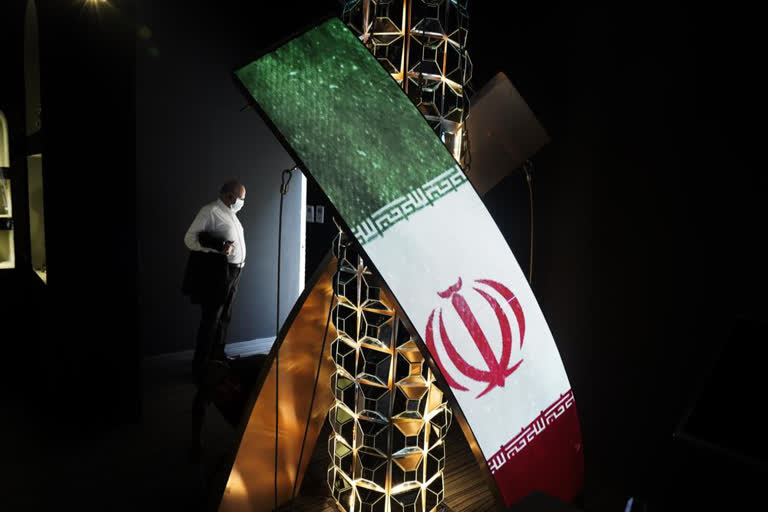Dubai: Iran wants you to put politics aside and marvel over its ornate carpets. Syria wants you to forget about its brutal war and learn about the world's first alphabet. Yemen, on the brink of famine, is very excited about its honey and coffee. Welcome to Dubai's Expo 2020, the first world's fair in the Middle East that boasts over 190 participating countries — except Afghanistan, whose new Taliban rulers are a no-show.
Dubai has gambled billions to make the built-from-scratch Expo village a triumphant tourist attraction and symbol of the United Arab Emirates itself — a feast for the eyes designed to be devoid of politics and built on the promise of globalisation. But even as nations use their pavilions as benign infomercials, the political turbulence of the wider world manages to intrude.
“We had one bullet to shoot,” said Manahel Thabet, Yemeni pavilion director. “We wanted to present Yemen in a different manner … to demonstrate the people and not any political agenda.” But the winding journey the exhibit's handicrafts took from the nation's rebel-held north to the sleek Emirati-funded pavilion betrays a very different Yemen.
Also Read:Modi launches India Pavillion at Expo Dubai 2020
Merchants described harrowing nights trekking with Expo-bound sacks of stones, spices and honey through the battlefields of Marib, Yemen's last government stronghold now under siege by the Iran-backed Houthi rebels. The pavilion for Myanmar, where the army's seizure of power has spiralled into a bloody conflict, displays a golden chariot and beckons visitors to its pagoda-studded plains.
The previous government, which was toppled by a coup in February, had appointed a leading Burmese philanthropist to direct and sponsor the showcase years ago. But a person familiar with pavilion's operations, who spoke on condition of anonymity for fear of reprisals, said Myanmar's military junta in recent weeks had been trying to overhaul the philanthropist's exhibit and change the event schedule, with hopes to host nationalist, military rallies over the fair's six months.
Expo organizers, the person added, were trying to prevent the takeover, but the pavilion's fate remains uncertain. After the UAE announced it would normalize relations with Israel last year, infuriating the Palestinians and upending a long-standing Arab consensus, the Palestinian Authority declared it would boycott Dubai's Expo. And yet just a two-minute stroll from Israel's mirrored arch, Palestine's pavilion stands tall, its vast exterior painted with Arabic calligraphy reading: “Yesterday it was called Palestine. Today it is called Palestine.”
The exhibit creates a full sensory experience, inviting visitors to touch handmade ceramic jugs, watch vendors slicing knafeh, a syrupy cheese-filled pastry, and smell oranges from Palestinian farms. However, the Palestine pavilion has not officially opened to the public, as employees described a litany of headaches trying to get approval from Israeli authorities to get certain goods out of the occupied West Bank.
When asked what prompted the about-face on Palestine's participation, staffers said it was decided that a Palestinian absence at the massive world's fair would be worse. While many countries received invitations to participate in Expo almost immediately after Dubai won the bid in 2013, Syria said it was invited just two years ago — not long after the UAE reopened its embassy in Damascus in a sign of improved ties with President Bashar Assad following years of devastating civil war. It was the last nation to begin construction.
